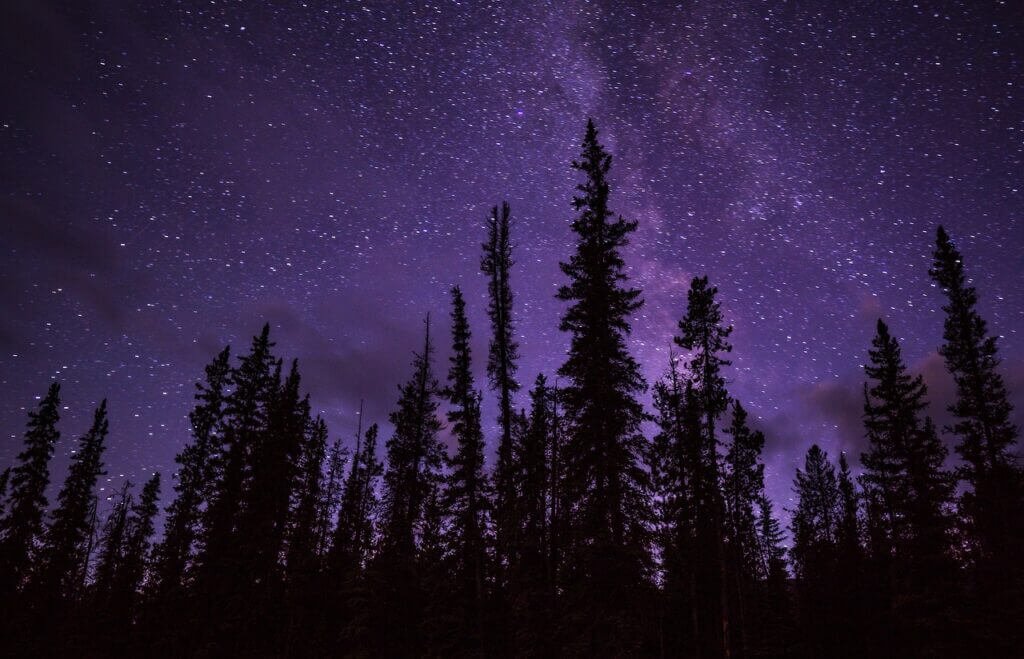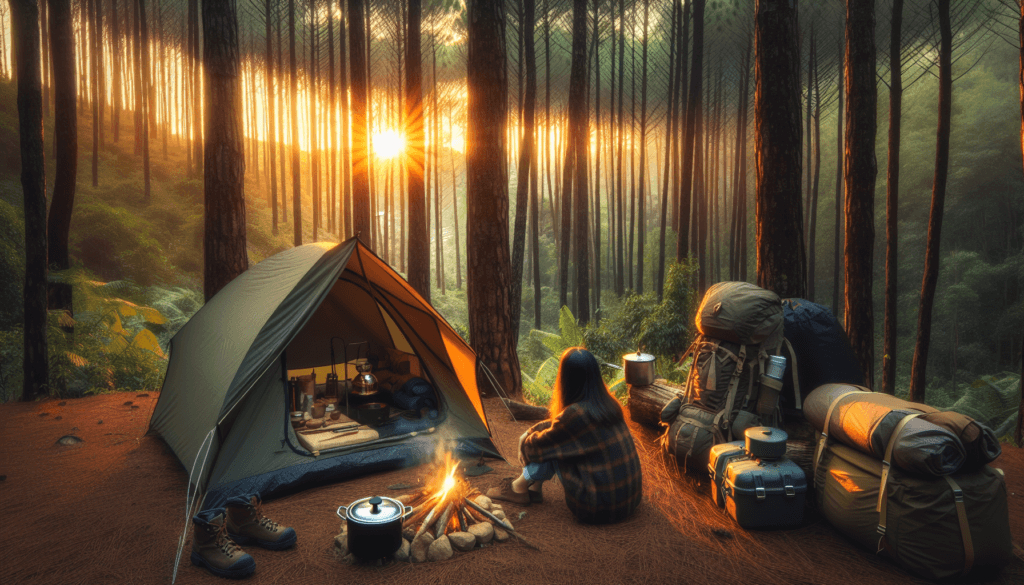Imagine waking up to the crisp morning air, surrounded by nature’s untouched beauty in a remote or off-grid location. The possibilities for camping in these hidden gems are endless, offering you a chance to escape the noise and chaos of the modern world. From pitching a tent in the heart of a dense forest to embarking on a rugged adventure in the mountains, there are numerous options awaiting your discovery. Whether you prefer the tranquility of a secluded beach or the thrill of exploring vast deserts, these remote or off-grid locations offer a unique and unforgettable camping experience that will leave you yearning for more. When you’re looking to connect with nature and escape from the hustle and bustle of everyday life, camping in remote or off-grid locations can be a wonderful option. There are various types of camping available to suit different preferences and lifestyles. Whether you prefer the simplicity of tent camping or the convenience of an RV, there’s a camping option that’s perfect for you. Let’s explore some of the popular camping options for remote or off-grid locations.

1. Tent camping
Tent camping is one of the most traditional and cost-effective ways to experience the great outdoors. The key to a successful tent camping trip is choosing the right tent. Look for a tent that suits the number of people accompanying you and is suitable for the weather conditions you expect to encounter. Additionally, consider the weight and size of the tent for ease of transport.
In addition to a tent, there are some essential camping gear you’ll need. A sleeping bag, sleeping pad or air mattress, and camping stove are must-haves. You’ll also want to pack cooking utensils, food supplies, and of course, bug spray. When it comes to finding suitable camping spots, consider national or state parks, public lands, or private campgrounds that offer the amenities and facilities you desire.
2. RV camping
If you prefer a more comfortable camping experience with all the amenities of home, RV camping might be the right choice for you. RV camping allows you to bring the comforts of home with you, including a kitchen, bathroom, and sleeping quarters. This is especially beneficial for those who require special accommodations or have larger families.
There are several types of RVs available for off-grid camping, ranging from motorhomes to travel trailers. Consider the size and features that best suit your needs. Before embarking on your off-grid RV adventure, ensure your RV is adequately prepared. This includes checking the water, gas, and electrical systems, stocking up on supplies, and organizing your belongings. When it comes to finding RV-friendly locations, there are many campgrounds and parks that cater specifically to RVs, providing hookups and other conveniences.

3. Van camping
Van camping has become increasingly popular among outdoor enthusiasts who crave flexibility and mobility. With a campervan, you have the ability to explore various remote locations without sacrificing comfort. The advantages of van camping include the ability to park and sleep almost anywhere, lower costs compared to RVs, and the opportunity to blend into natural surroundings.
To convert a van into a campervan, you’ll need to consider the layout, storage, and essential amenities such as a bed, cooking area, and portable toilet. Many van owners choose to install solar panels to power their appliances. Safety is also a crucial consideration, so make sure you have the necessary equipment, such as a fire extinguisher and carbon monoxide detector. When van camping, it’s important to be mindful of local regulations and permissions.
4. Backpacking
For the adventurous souls who prefer a more immersive wilderness experience, backpacking is an excellent option. Backpacking allows you to explore remote areas, inaccessible by vehicles, and truly connect with nature. Essential backpacking gear includes a lightweight and durable backpack, a tent, sleeping bag, and a stove. When choosing gear, prioritize weight and compactness, as you’ll be carrying everything on your back.
Careful planning is crucial for backpacking trips. Research and choose trails that align with your fitness level and experience. Consider factors such as elevation gain, trail conditions, and availability of water sources. It’s also essential to follow Leave No Trace principles, minimizing your impact on the environment and ensuring the preservation of these remote locations.

5. Hammock camping
Hammock camping offers a unique and relaxing way to experience remote or off-grid locations. It’s a popular choice for those who enjoy the feeling of being suspended between the trees. When selecting a hammock, look for one specifically designed for camping with sturdy straps and carabiners. Accessories such as a rainfly, bug net, and underquilt can enhance your comfort and protection against the elements.
Setting up a hammock campsite is relatively straightforward. Find two sturdy trees that are an appropriate distance apart and hang your hammock using the straps. Proper tension and height are important for a comfortable and secure sleep. Keep in mind that not all camping areas may have suitable trees for hammock camping, so plan accordingly.
6. Cabin or shelter rentals
If you prefer the comforts of a roof over your head and a solid structure, cabin or shelter rentals can provide a cozy retreat in remote or off-grid locations. Cabins or shelters offer protection from the elements while still allowing you to immerse yourself in the surrounding nature. They often come equipped with basic amenities like beds, furniture, and cooking facilities.
There are various types of remote cabins or shelters to choose from, ranging from rustic log cabins to modern eco-conscious structures. Some accommodations may require advance booking, so be sure to check availability well in advance. Cabin or shelter rentals are a great option for those who want a taste of off-grid living without sacrificing comfort.

7. Primitive camping
For the true outdoor enthusiasts seeking a back-to-basics experience, primitive camping is the ultimate adventure. Also known as dispersed camping or wild camping, primitive camping involves setting up camp in undeveloped areas without designated campsites or amenities. This type of camping allows you to fully immerse yourself in nature, away from crowds and civilization.
Before embarking on a primitive camping trip, it’s important to possess essential skills and knowledge. These include basic navigation, wilderness first aid, and the ability to properly set up camp and manage limited resources. Choosing appropriate locations is crucial to ensure minimal impact on the environment and adhering to regulations. Always practice safety precautions such as wildlife awareness and proper food storage.
8. Hiking and camping
If you enjoy the thrill of hiking and want to extend your wilderness experience, combining hiking and camping is an excellent option. Backpacking-friendly hiking trails provide opportunities to explore remote locations and spend nights under the stars. Research and select trails that offer overnight camping options and take note of any permits or restrictions that may apply.
When planning for overnight hiking trips, consider the duration, difficulty, and terrain of the trail. Ensure you have the necessary camping gear, including a lightweight tent, cooking equipment, and a water filtration system. Pay attention to navigation and safety considerations, such as having a detailed map, a compass, and a first aid kit.
10. Bikepacking
For those who want to combine their love for cycling and camping, bikepacking is a thrilling adventure. Bikepacking involves long-distance cycling trips with camping gear attached to your bike. It allows you to cover more ground while still having the freedom to explore remote or off-grid locations.
Choosing a suitable bicycle and equipment is key to a successful bikepacking trip. Look for a sturdy and reliable bike that can handle off-road conditions. Lightweight camping gear is essential to minimize the weight on your bike. Mapping bikepacking routes in advance helps determine suitable paths based on your fitness level and desired scenery. Efficiently packing your gear is important for balance and stability during your bikepacking adventure.
No matter which camping option you choose, camping in remote or off-grid locations offers a chance to disconnect from the modern world and immerse yourself in the beauty of nature. Remember to check local regulations, respect the environment, and leave no trace. Happy camping!


